Архив в PDF формате
Дата публикации статьи в журнале: 2020/11/18
Название журнала: Восточно Европейский Научный Журнал, Выпуск:
62, Том: 6,
Страницы в выпуске: 41-46
Автор: Stechak Halyna
, Danylo Halytsky Lviv National Medical University, Department of Ukrainian Studies , Candidate of Pеdagogical Sciences, Senior lecturer
, Danylo Halytsky Lviv National Medical University, Department of Ukrainian Studies , Candidate of Pеdagogical Sciences, Senior lecturer
Автор: Iahelo Svitlana
, Danylo Halytsky Lviv National Medical University, Department of Ukrainian Studies , Candidate of Philological Sciences, Senior Lecturer, Scientific Secretary
, Danylo Halytsky Lviv National Medical University, Department of Ukrainian Studies , Candidate of Philological Sciences, Senior Lecturer, Scientific Secretary
Автор: Chusova Olga
, The state institution «South Ukrainian National Pedagogical University named after K.D. Ushynsky» , Candidate of Pedagogical Sciences, Senior Lecturer
, The state institution «South Ukrainian National Pedagogical University named after K.D. Ushynsky» , Candidate of Pedagogical Sciences, Senior Lecturer
Анотация: The article highlights the advantages and disadvantages of distance learning, introduced during the pandemic. The results of a survey conducted to determine the attitudes of students and teachers to distance education to identify the shortcomings of this form of learning and the development and implementation of appropriate online resources based on methods and tools that can be used in online learning to improve student achievement (web -portfolio, virtual classroom, lecture recordings, flipped classroom, virtual travel and museum visits). The peculiarities of the influence of distance education on various aspects of the learning process (social, personal, pedagogical and psychological) are given. A comparative analysis of traditional distance learning with distance learning in a pandemic and based on it identified the most important Internet resources that have the greatest impact on the quality of education. Measures are proposed that help to increase mental activity, improve the level of perception of educational material by students, as well as help to positively perceive the situation in education due to the coronavirus epidemic (appropriate arrangement of work space, providing the necessary equipment for such training, psychological, social, medical and material support for all participants in the learning process).
Ключевые слова:
education
online resources
COVID-19
epidemic
implementation
logistics
Данные для цитирования:
Stechak Halyna ,
Iahelo Svitlana ,
Chusova Olga .
FEATURES OF DISTANCE EDUCATION ORGANIZING IN A PANDEMIC (41-46). Восточно Европейский Научный Журнал. Педагогические науки. 2020/11/18;
62(6):41-46.








